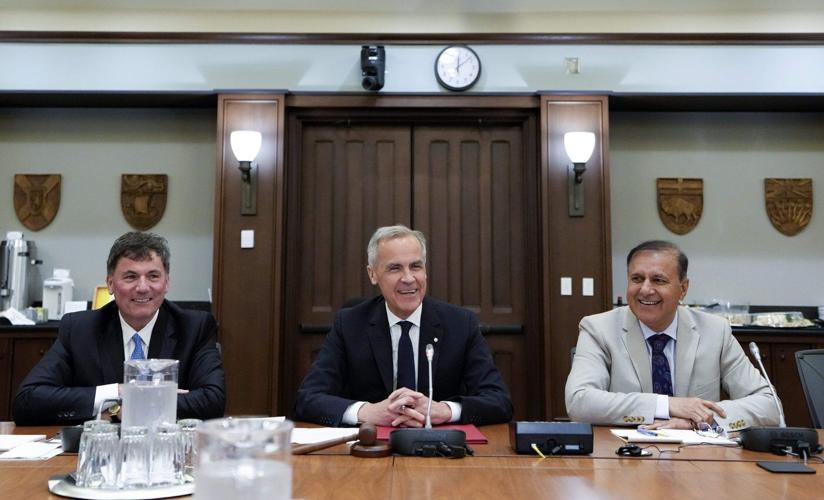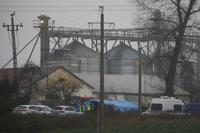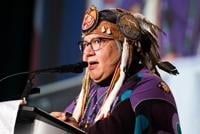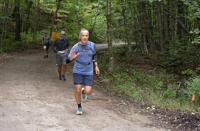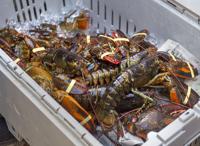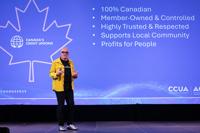Here is a roundup of stories from ░Ą═°Į¹Ū° designed to bring you up to speed...
Teck Resources to merge with Anglo American
Vancouver-based Teck Resources Ltd. and Anglo American plc have announced an agreement to merge their operations.
A statement from the two mining and natural resources companies released on Monday night says they will form the Anglo Teck group.
The release says the "merger of equals" will create a company that will be a global critical minerals champion and one of the world's largest producers of copper.
The two companies are committing to having Anglo Teck's global headquarters in Vancouver, with corporate offices in London and Johannesburg.
Canada's Minister of Industry Melanie Joly said in a social media post that the federal government will address several issues as it considers the merger, including the combined firm's pledge to have its senior leadership based in and reside in Canada.
Teck Resources and Anglo American expect the merger to be completed in the next 12 to 18 months.
Here's what else we're watching...
Ottawa working on public registry of AI use
The federal government says it plans to launch a public registry to keep Canadians in the loop on its growing use of artificial intelligence.
The registry will also help the government itself keep track of AI projects that are underway. Kara Beckles, executive director of privacy and responsible data at the Treasury Board, said that while AI platforms are being used in many ways across government, there is no "full and complete list."
Beckles said that over the past few years, "departments have really started experimenting more and more with implementing AI in different ways."
She cited Fisheries and Oceans Canada using AI to help find lost fishing gear, Agriculture Canada processing satellite data to help predict crop yields, and Transport Canada using AI to screen high-risk air cargo.
But these initiatives have been piecemeal and individual departments have been launching their own projects. The public service is now working on a more co-ordinated approach under an AI strategy launched earlier this year.
B.C. turns off forage farmers' irrigation taps
The British Columbia government has ordered forage-crop farmers in the province's south to turn off their irrigation taps, because "severe low flows" are threatening endangered chinook salmon.┬Ā
Randene Neill, B.C.'s minster of water, land and resource stewardship, said "when stream flows drop to critical levels, and vulnerable species are at risk," government must take regulatory action.
An order issued yesterday stops farmers from irrigating forage crops and certain industrial purposes. It applies to 490 users in the Salmon River and Bessette Creek watersheds, including farmers who grow grass, alfalfa and corn.
The government is also ordering 19 licensees in the Salmon River watershed to stop using water for lawns, fairways and garden industrial purposes.
Neill said the order will be "rescinded if stream flow recovery is sufficient," but not could give an exact date.
Gold mining dominates TSX top-performing stocks
The latest ranking of the Toronto Stock Exchange's top-performing companies indicates investors were on the hunt for safe havens amid economic uncertainty.
The TSX 30 is an annual ranking of the top 30 best-performing stocks on CanadaŌĆÖs benchmark index based on dividend-adjusted share price performance across a three-year period.┬Ā
The 2025 iteration of the list, released Tuesday, highlights three main themes ŌĆö mining, AI and innovation, and industrials.
Mining firms totalled 17 of the 30 companies listed, with 15 of those being gold names.┬Ā
Lundin Gold Inc. came second on the list, with a 775 per cent dividend-adjusted return over three years. Avino Silver & Gold Mines Ltd. was fifth, with a 610 per cent return and New Gold Inc. took the eleventh spot, rising 394 per cent during the period.
The strong performance of gold companies this year comes alongside a sharp appreciation in bullion prices, topping US$3,600 an ounce, up from about US$2,500 last year.┬Ā
Outrage in Ontario town over 'super school' fiasco
Even when schools across Canada shifted to online learning during the COVID-19 pandemic, Rob HammondŌĆÖs autistic daughter attended in-person classes in their Ontario cottage country town.
The Parry Sound, Ont., school had made learning spaces available for students with special needs so they could learn and socialize with their classmates and teachers.┬Ā
Now in Grade 12, Hammond's daughter is among hundreds of high school students in the community whose only option is online learning for the foreseeable future. Their old school was partially demolished and a new school for students from junior kindergarten to Grade 12 that had been scheduled to open on Sept. 2 remains closed due to construction delays.┬Ā
The situation has left parents and students angrily searching for answers, from what went wrong to what comes next, and triggered a provincial review of the school board's governance.
In a statement released on Aug. 26, the board said that ŌĆ£after thoughtful consideration,ŌĆØ it had decided to move Grade 9 to 12 students to remote learning while the younger students will attend either McDougall or Nobel until the new school is ready.
This report by ░Ą═°Į¹Ū° was first published Sept. 9, 2025.

